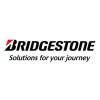









Corporate Social Investment

Why Road Safety Demands Investment
South Africa sits at a crossroads: our National Road Traffic Act (NRTA) is contradicted by our own Constitution and the Children’s Act. The NRTA sets the bare minimum for child passenger safety, while the Constitution and Children’s Act demand that children’s best interests are paramount in every matter concerning them. When children travel without car seats or visibility gear, their right to life, dignity, and protection is compromised before they even reach the school gate.
This contradiction leaves a dangerous gap — and in that gap, children are put at daily risk. Road crashes remain the leading cause of death for South African children under 14. That single statistic should stop us all in our tracks. We pour resources into education, health, and youth development, yet without safe roads, children may never be able to take full advantage of these opportunities. Road safety is not a “nice to have”; it is the foundation that allows every other developmental goal to succeed.
For corporates, this is where meaningful change can happen. By investing in road safety initiatives — car seat distribution, Halo Beanies for visibility, taxi driver training, school talks — companies directly uphold the Constitution, give effect to the Children’s Act, and protect the very beneficiaries of their other CSI commitments. It is legally aligned, morally right, and strategically smart.
When a company steps into this space, they are not just funding another project. They are filling a legislative gap, amplifying their social impact, and ensuring that every rand they spend on education, health, or skills reaches children who are safe, present, and able to benefit fully from it.
In short: without road safety, children cannot fully enjoy their constitutional rights, nor thrive in the programmes designed to uplift them. With road safety, every child gets a fair chance to live, learn, and flourish.
Acknowledging Every Contribution That Drives Change
18A Certificates and BEE points:
At Wheel Well, we know that every donor is a co-pilot in the transformations we make on the road to safer communities.
All donations over R500 come with a Section 18A tax-deductible receipt and a BEE letter of thanks, giving you full BEE points under the SED category. Your support is fuel for our projects, used exclusively by Wheel Well to benefit previously disadvantaged children—helping you steer meaningful socio-economic impact while staying fully compliant.
18A Donations FAQ
A PBO is an organisation that meets the requirements prescribed in section 30 of the Income Tax Act (the IT Act) and which may apply for approval to the Commissioner of the South African Revenue Service (the Commissioner), to enjoy the benefit of certain tax concessions.
This is a specific receipt that is issued to a donor by an organisation that has been approved by the Commissioner under section 18A of the IT Act. A taxpayer making a bona fide donation in cash or of property made in kind is entitled to a deduction from his taxable income if the donation is supported by the necessary tax deductible receipt.
The donations received in cash or of property made in kind may only be used to carry on PBAs listed in Part II of the Ninth Schedule of the IT Act.
PBAs approved by Minister of Finance for section 18A purposes are listed in Part II (of the Ninth Schedule to the IT Act). The PBAs are limited to certain categories, the following which falls within Wheel Well mandate:
• Health Care
• Education and Development
The following examples do not constitute a bona fide donation: The donation of services rendered such as a professional person providing a voluntary service or renders his skill free of charge. An amount paid for attending a fundraising dinner, dance or charity golf day. The amount paid for the successful bid of goods auctioned to raise funds by an organisation. Memorabilia, paintings, etc, donated to be auctioned to raise funds. Amounts paid for raffle or lottery tickets. Amounts paid for school fees, entrance fees for school admittance or compulsory school levies. Value of free rent, water and electricity provided by a lessor to the lessee which is an approved PBO. Payments in respect of debt due by an entity approved in terms of section 18A. An example would be the cost of repairs to a vehicle paid on behalf of the PBO.
